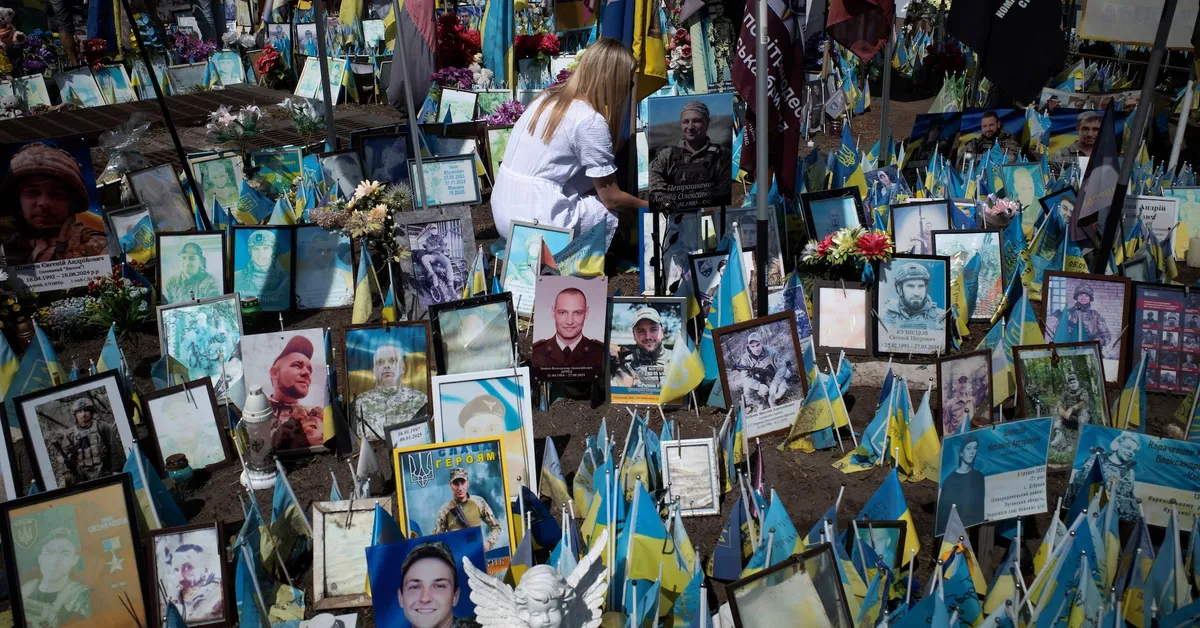
On August 9, 2023, European leaders expressed their support for U.S. President Donald Trump's plans to meet with Russian President Vladimir Putin in an effort to end the ongoing war in Ukraine. The leaders emphasized the importance of maintaining pressure on Moscow while safeguarding both Ukrainian and European security interests. Trump's meeting with Putin is scheduled for Friday in Alaska, where he indicated that discussions would include Ukrainian President Volodymyr Zelenskiy, with the aim of reaching a potential agreement to resolve the conflict that has persisted for three and a half years.
The White House has indicated that while Trump is open to a trilateral summit involving Putin and Zelenskiy, initial plans will focus on a bilateral meeting as requested by Putin. Officials from Russia and Ukraine have not yet commented on the likelihood of a trilateral meeting. Although the specifics of any potential deal remain undisclosed, Trump hinted at a possible arrangement involving territorial swaps that could be mutually beneficial. Concerns have been raised, however, that this might necessitate Ukraine conceding significant territory, a move that Zelenskiy and his European allies fear would only embolden further Russian aggression.
On the same day, U.S. Vice President JD Vance convened with British Foreign Secretary David Lammy and representatives from Ukraine and European nations at Chevening House, a historic estate southeast of London. The discussions focused on Trump's diplomatic efforts to achieve peace in Ukraine. A joint statement was released by leaders from France, Italy, Germany, Poland, Britain, Finland, and the president of the European Commission, welcoming Trump's initiative while stressing the necessity of ongoing support for Ukraine and sustained pressure on Russia.
The leaders collectively voiced their commitment to ensuring that any diplomatic resolution would respect Ukraine's and Europe's vital security interests. They underscored that international borders must not be altered through force, stating, "The current line of contact should be the starting point of negotiations." Furthermore, they asserted that any negotiations could only take place within the context of a ceasefire or a reduction in hostilities.
Andriy Yermak, chief of staff to President Zelenskiy, participated in the discussions with European leaders and U.S. officials, expressing gratitude for their constructive dialogue. He reiterated Ukraine's position, stating that while a ceasefire is essential, the front line should not be regarded as a border. Yermak emphasized Ukraine's firm refusal to make any territorial concessions to Russia, thanking Vance for his respect towards all viewpoints during the talks.
A European official revealed that representatives had drafted a counterproposal, although details were not disclosed. According to the Wall Street Journal, the counterproposal included stipulations that a ceasefire must precede any further negotiations and that any territorial exchanges must be reciprocal, accompanied by robust security guarantees. A European negotiator commented, "You can't start a process by ceding territory in the middle of fighting."
Discussions at Chevening reportedly resulted in significant progress towards Trump's goal of ending the war in Ukraine ahead of the imminent meeting with Putin. However, the White House did not immediately respond to inquiries about the European counterproposals. British Prime Minister Keir Starmer and French President Emmanuel Macron reiterated their commitment to finding a just and lasting peace in Ukraine and pledged unwavering support for Zelenskiy.
While the outcomes of the Chevening meetings remain unclear, Zelenskiy described the discussions as constructive. He emphasized that the pathway to peace in Ukraine must involve Ukrainian input, stating, "This is the key principle." Macron further reinforced the necessity for Ukraine to have a role in any future negotiations, highlighting that the future of Ukraine must be determined by the very people who have fought for their freedom and security for over three years.
Ukraine and the EU have pushed back against proposals perceived as conceding too much to Putin, who initiated the conflict by sending troops into Ukraine in February 2022. Russia justifies its actions by citing perceived threats from Ukraine's Western alignment, while Kyiv and its allies view the invasion as an imperial land grab. Despite claims over several Ukrainian regions, including Luhansk, Donetsk, Zaporizhzhia, and Kherson, fierce fighting continues along the extensive front line.
Experts express skepticism regarding the implementation of any agreements. Tatiana Stanovaya, a senior fellow at the Carnegie Russia Eurasia Center, characterized the current peace efforts as the first realistic attempt to halt the conflict but remains doubtful about the feasibility of any commitments made. She warned that these new obligations could have dire consequences for Ukraine. As the conflict continues, Ukrainian sentiment remains resolute, with citizens steadfast in their refusal to cede territory.